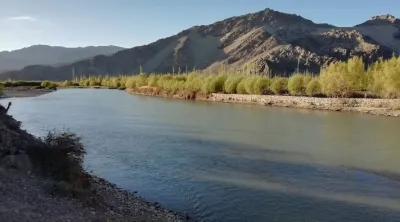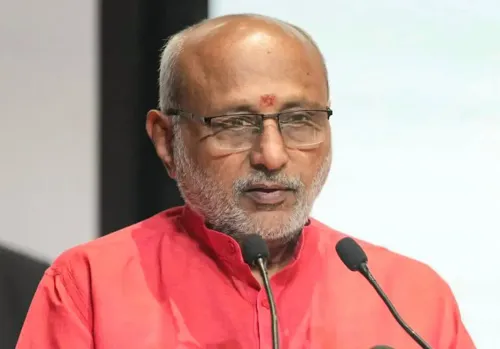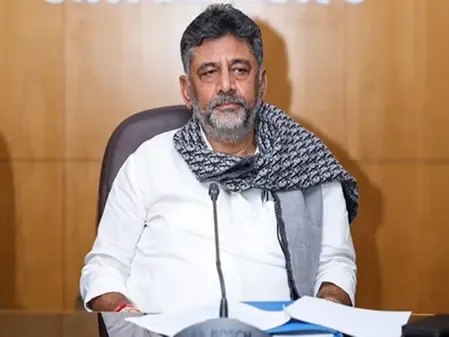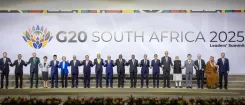Will India's Water Resources Be Exclusively for Its Own Needs? PM Modi's Strong Message to Pakistan

Synopsis
Key Takeaways
- PM Modi asserts India's water will serve national interests.
- Suspension of the Indus Water Treaty reflects strategic decisions.
- Concerns raised in Pakistan over water flow restrictions.
- Historical context of water as a source of conflict emphasized.
- India aims to manage rivers better through interlinking initiatives.
New Delhi, May 6 (NationPress) Amid escalating tensions with Pakistan regarding the Indus Water Treaty, Prime Minister Narendra Modi firmly stated that India's water resources will be utilized exclusively for the country's needs.
During a segment on a news channel's program titled 'India@2047 Summit', the Prime Minister conveyed a robust message to Pakistan, asserting that India has historically been at a disadvantage, allowing water from the Indus River to flow into Pakistan due to an inequitable treaty. However, he proclaimed that this disparity would now be addressed. “Bharat ke haq ka paani, Bharat ke haq mein bahega” (water that rightfully belongs to India will now serve the country’s needs), asserted Prime Minister Modi.
He pointed out the historical context of rivers often becoming sources of conflict, yet reaffirmed India's commitment to interlinking rivers for enhanced management. While extensive media discussions revolve around water issues, the reality is that India has been conceding its rightful share. Moving forward, India's water will be protected and directed towards national benefit.
Following the tragic attack in Pahalgam that claimed 26 civilian lives, primarily tourists, India has implemented a series of retaliatory actions against Pakistan, including the suspension of the Indus Water Treaty (IWT). After a prolonged cabinet meeting led by Prime Minister Modi, Foreign Secretary Vikram Misri announced the downgrading of diplomatic relations with Pakistan and that the treaty would be suspended until Pakistan takes substantial measures to halt cross-border terrorism.
As part of India's strategic response, New Delhi has partially restricted water flow to Pakistan by closing the Baglihar and Salal dams on the Chenab River in Jammu and Kashmir. This action has raised concerns in Pakistan, where the Indus River System Authority (IRSA) advisory committee expressed “deep apprehension” over a sudden decrease in River Chenab's inflows at Marala, attributing this decline to India's decision to limit water access. This development signifies a notable shift in India's management of its water resources, demonstrating a resolute stance in safeguarding national interests amidst ongoing geopolitical tensions.









